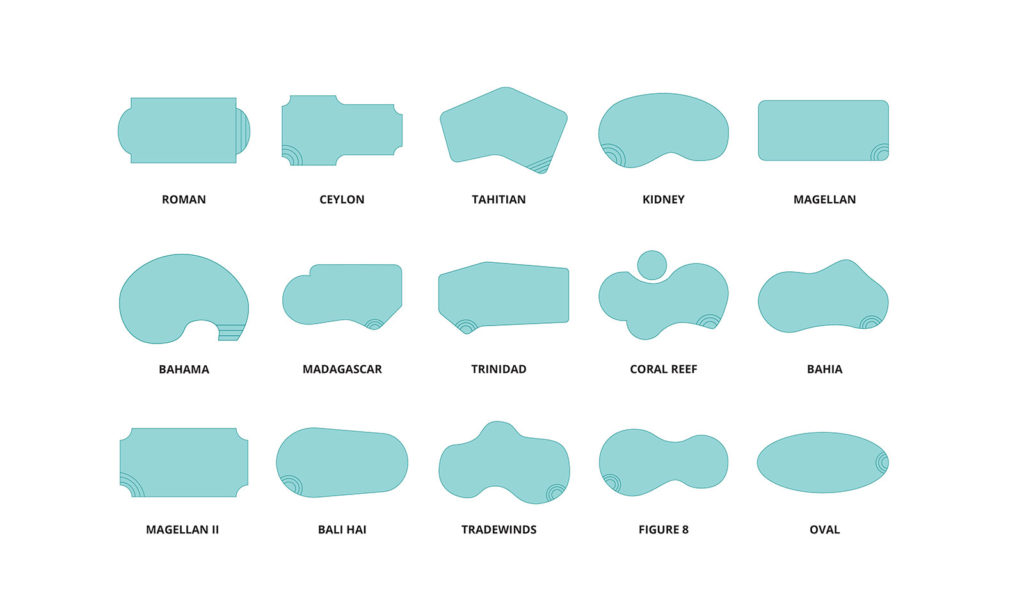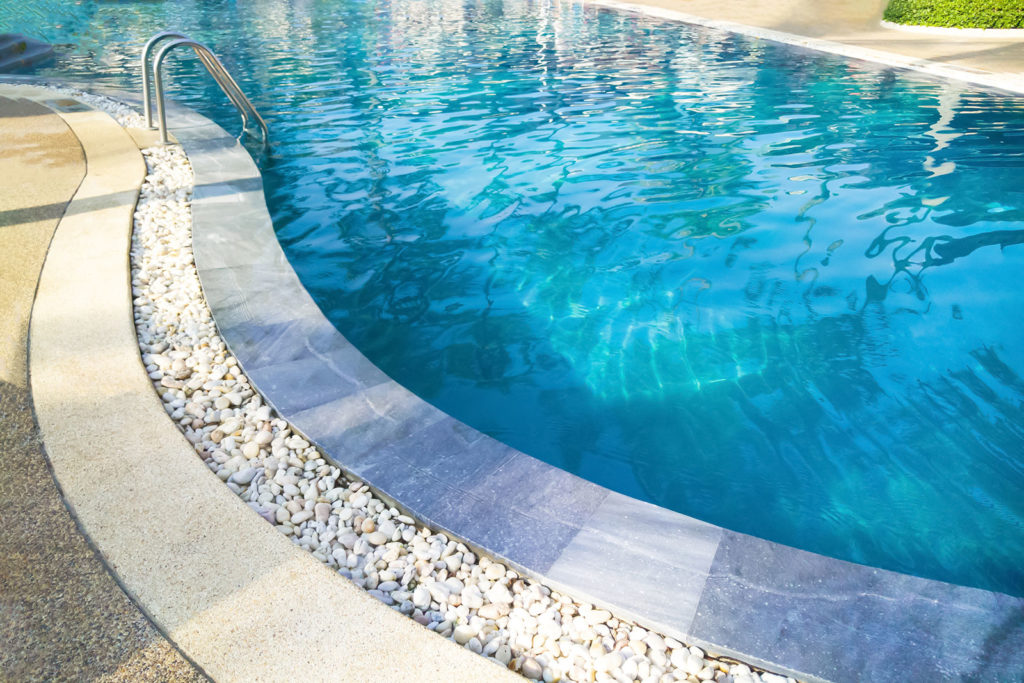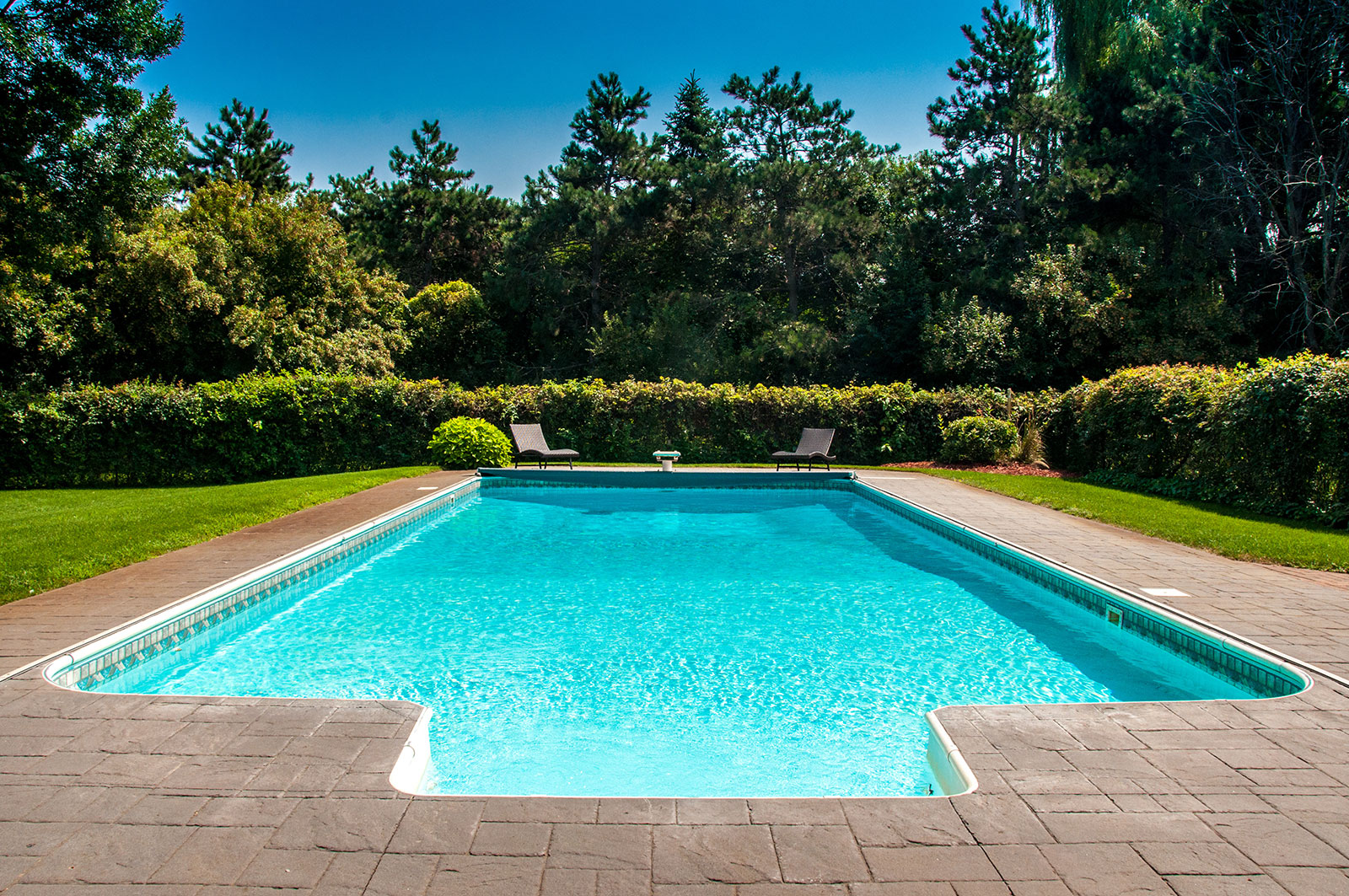Summertime is the perfect time to take a dip in your pool. But if you have a small backyard, you might be wondering what the best pool shape is for you. A round or oval-shaped pool might be the best option, as they use less space than other shapes. Check out this blog post for more information on the best pool shapes for small backyards.
Factors to note before choosing the shape of your pool
The shape of your pool can determine whether it is a piece of art or a functional part of your yard. You can choose many shapes to suit your different needs and requirements. This can be achieved by creating a plan of the shape and size that suits your needs. The following are some factors you should consider when planning for the shape of your pool.
Property dimensions
The property dimensions are one of the most critical factors you need to consider before choosing a swimming pool shape. If you have a large property, you can opt for a large-sized swimming pool and vice versa. This will help in saving space as well as time during construction. If your property is small, it would be better to go for a rectangular or square-shaped swimming pool instead of opting for an oval-shaped one. This will help save space and ensure that there are no unnecessary curves in your backyard that would not look appealing.
Budget
The budget for your swimming pool is one of the first things you need to consider when choosing the shape of your swimming pool. It is so important because the price of different types of swimming pools can vary greatly, and this will affect what type of shape you can afford.
There are many different shapes available for swimming pools, but only some will be available within your price range. For example, if you have a small budget, it may not be possible to get an elliptical-shaped swimming pool as they are more expensive than other shapes such as kidney-shaped or rectangular ones. However, if you have a large budget, then there are no limits on what type of shape you can choose for your swimming pool as long as it fits within your budget.
Number and age of users of the property
When choosing the shape of your pool, it’s essential to consider how many people will be using it and how old they are. A circular or oval shape may be best if you have a large family and/or if there are young children in the family. This is because it’s easier for parents to keep track of children in a circle or oval-shaped pool than in other shapes.
If you’re planning to use your pool for exercise, an irregular shape can be beneficial as it will force you to move around more while exercising. It also means that you won’t get bored with doing the same exercises over and over again. If your children are older, a rectangular shape may appeal more- this gives them more space to play around.

There are three main types of residential pools
Above Ground Pools
Above-ground pools are the most popular choice for homeowners because they’re easy to install and maintain. They’re also affordable, versatile, and can be customized to fit any backyard. The most common types of above-ground pool liners — vinyl and fiberglass — offer a range of benefits and drawbacks, so it’s crucial to weigh the options before deciding which one is best for you.
In-ground Pools
In-ground pools are typically installed in concrete or vinyl-lined hole in your yard or deck. They can be more expensive than above-ground pools, but they typically last longer than their above-ground counterparts. In-ground pools also come in a variety of shapes and sizes, so you’ll have more options when it comes time to choose one that suits your family’s needs.
Above Ground/In-Ground Combo Pools
If you want the best of both worlds, you can opt for an above-ground/in-ground combo pool. These pools offer all the benefits of both types of liners without sacrificing their individual strengths. They’re designed with a below-grade foundation supporting an upper liner, which floats on top of the water as an above-ground pool would.
Different shapes you can consider
The best pool shape for a small backyard maximizes your yard’s space. When trying to fit a pool in a small area, it’s essential to consider the shape of the pool and how it will affect the rest of your yard.

Rectangle Pool
Rectangle pools are the most popular shape, and they’re great for a variety of reasons. First, they’re easy to build—you can start with a rectangle and then add curves or other embellishments to make it unique. They also take up less space than other shapes, which is helpful if you have limited space in your backyard. Finally, because rectangles are so standard, there are tons of resources for DIYers who want to build their own rectangular pool.
Angular Pool
Angular pools are also fantastic options for small backyards. These pools are typically built from triangles or squares; they can be large or small, depending on how much room you have in your yard. The main advantage of angular pools is that they don’t take up as much space as rectangles do, so if you have limited space in your yard but still want a pool that feels big enough for swimming laps or hosting parties, and angular pool might be just what you’re looking for.
Oval Pool
An oval pool is perfect for the small backyard because it has the longest length to width ratio of any shape. This provides a lot of space for swimming and diving but also allows you to turn around if you need to swim laps. To make the most of this shape, keep your deck along one side of the pool so people can quickly get in and out without having to walk across the entire pool.
Kidney-shaped Pool
Kidney-shaped pools are one of the most popular pool shapes. They are perfect for smaller backyards with rounded edges and smaller footprints. The kidney-shaped pool has a long rectangular shape that has a curve along the side, making it resemble an actual kidney.

Lazy ‘L’ shaped pools
The Lazy ‘L’ shaped pool is a common pool shape. This is an excellent choice for anyone looking to maximize their space with minimal maintenance and upkeep. The Lazy ‘L’ shape gives you a lot of flexibility when it comes to design and function. You can create an infinity-edge swimming pool or add waterfalls, spas, and swim-throughs.
The Lazy ‘L’ shaped pool is made up of two separate rectangular pools that meet at an angle in the middle of the yard. Each side has an end wall and a shallow end wall, which creates the ‘L.’ The shallow end wall gives people more room to swim around. It also makes it easier for children to enter and exit the pool without getting wet feet or risking a slip-and-fall accident. One advantage of having a lazy ‘L’ shaped swimming pool is that it gives you more options when it comes to design and function than any other type of backyard pool shape would allow.
Figure 8 pools
A figure 8 pool is the best pool shape for a small backyard. These pools are also a great option if you don’t want to install two separate pools because they can be connected with a simple bridge. The latter is preferable, but it requires more space.
In both cases, the construction is similar and involves digging out an area for the shape of the pool itself and another area for the water pump and filter system. A big advantage of these types of pools is that they are easy to install and maintain. You can even do it yourself if you have some experience with landscaping projects. Another advantage is that they don’t take up much space, so they’re perfect for smaller backyards where it’s difficult to fit other types of swimming pools.
Circular pool
Circular pools are perfect for those who want a large swimming pool in their backyard. The circular shape of the pool allows more people to swim around and enjoy the water at one time.
The circular design of this type of pool makes it ideal for smaller yards, as it allows more swimmers to fit into the water at once without having them bump into each other. This is especially important when you have kids playing in the water and don’t like being crowded by other kids or adults.
Circular pools can be made from many different materials, including concrete, vinyl liner, or gunite (shotcrete). Gunite pools are quite popular among homeowners because they last longer than other construction materials and look great too.
Conclusion
Most people choose to install a round pool in their backyard, as they offer the most versatile look. But what other shapes could you choose? Rectangular pools have a long and narrow shape, which limits your pool choice. Elliptical pools are wider than rectangular pools and require more space. Fully in-ground pools are hidden from view and ground-level training but cost more.
FAQ
What is a good small size pool?
Is a rectangle or circle pool better?
Which is the most suitable swimming pool shape?
L-shaped pools for small yards

